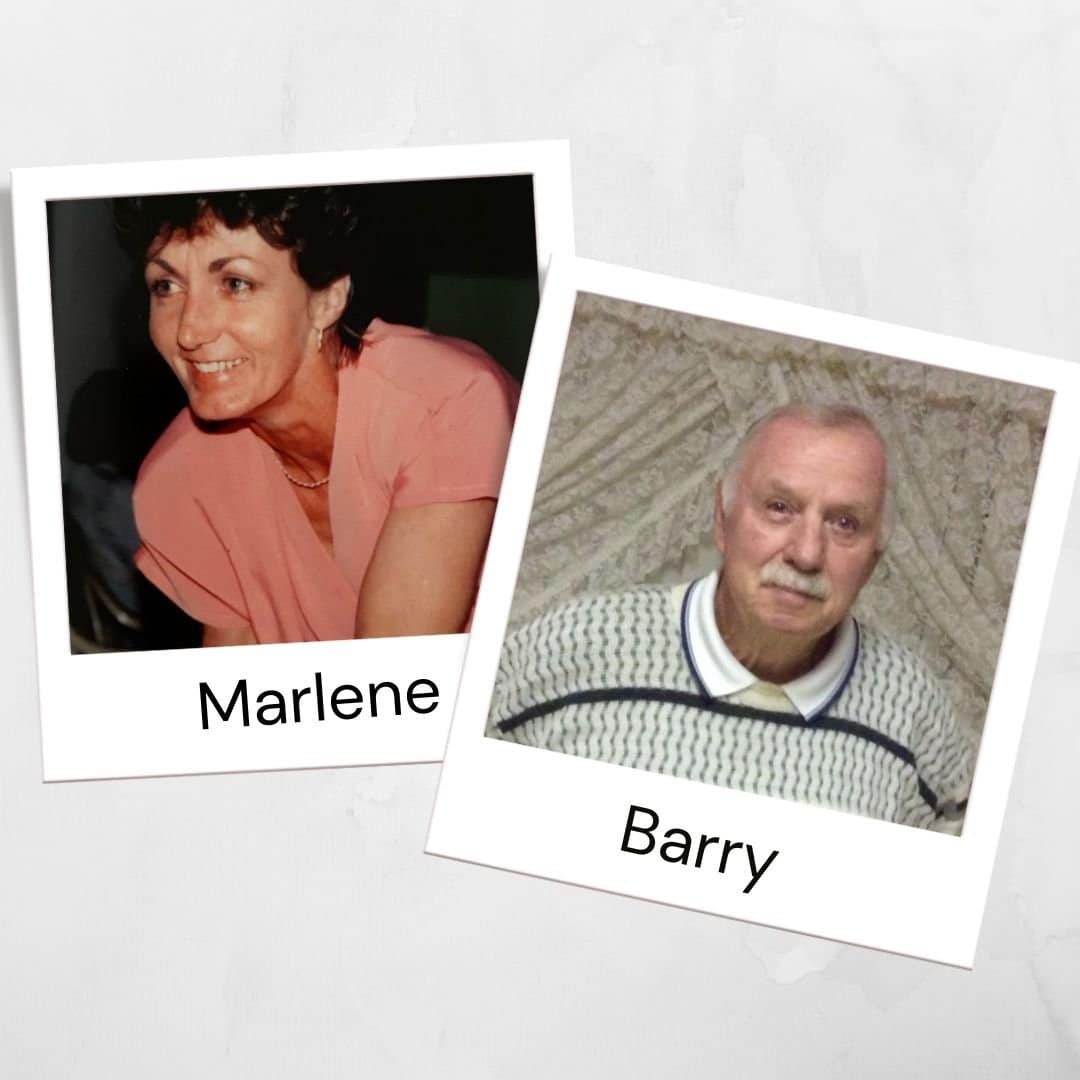
Ann has experience caring for not one, but two family members who were affected by cancer simultaneously. Navigating the cancer care landscape was further complicated by the onset of COVID-19. This is Ann’s story, of caring for her husband and her sister throughout their cancer journeys.
A lot of people in my family have been affected by cancer. Because cancer is so prevalent, you do live with the thought ‘it might happen to me or someone I love,’ but you still feel underprepared when you are suddenly hit by the cancer diagnosis of a close family member. In my case, my husband Barry’s diagnosis of lymphatic and liver cancer threw me out. I immediately shifted my focus from all other things and concentrated on the next steps for him and how I could make the journey easier. We were fortunate that our GP got an appointment with a specialist at Midland hospital, which was a good commute for us and, while there was a lot of running around, the logistics were manageable. My life did stand still as I focused on Barry, but I wanted to be the best possible support to him.
About two months after diagnosis, we had just got the situation with Barry under control when my sister, Marlene called. She had been diagnosed with Stage 4 lung cancer. Long ago, I had promised my mum on her deathbed (also due to cancer) that I would look after my little sister for the rest of our lives. My family is a close one and I really wanted to honour that promise. This is where things became a lot more complicated. Marlene was being treated in Fiona Stanley, which is a much longer commute for me and for 15 months I ferried Barry and Marlene to different appointments and navigated periods of time when they were admitted to the two different hospitals. There was so much travel and so many logistical aspects to keep track of. We were in and out of hospitals, Barry commenced one clinical trial that didn’t go well followed by a second trial that also made him unwell and all the while Marlene was getting sicker and sicker.
I thought things were incredibly difficult and then, COVID-19 hit. I can only describe this period as a nightmare. I was initially unable to get any help with transporting Barry and Marlene between home and hospital, the volunteer workers who had assisted previously were no longer available and I was no longer able to go to some of the appointments. It was a really, really tough time.
By August, Marlene ended up back in hospital and I was cooking meals for her every second day, taking them down on the bus. Barry was at home, not on any treatment and getting more and more unwell. After 4 weeks in hospital, Marlene passed away and my role shifted from carer to arranging the funeral and service for her. Barry went into hospital on New Years Eve and, from there, he was moved to palliative care in Kalamunda. While the frequent travel to Kalamunda was tiring, it was a relief to have him in care. He passed away 10 weeks later.
Navigating two simultaneous cancer journeys, as a hands-on carer was a very intense period – physically and emotionally. Once I grasped the fullness of the situation, I went into autopilot – you just have to, in order to get things done. In our case, knowing there was no cure for Barry or Marlene was in some ways a blessing. We got to grieve together and, at the start when they were more energetic, we’d do fun spontaneous things like a sleepover with me and my sisters, staying up late in the night and gossiping like teenagers. A finite period also allows you to say all the things you want to say – to ask each other questions and give truthful replies. Being a cancer carer was a privilege and I don’t regret anything from that period in my life. I truly believe I came out of the experience a stronger person. Of course, there was relief when Marlene and then Barry both passed away, because their suffering was over. In amongst all the chaos of Marlene and Barry’s illness, my younger brother died suddenly of a heart attack. This was a huge shock, because it was so unexpected and random and in truth, I think I am still grieving him some two years later.
When I think about the opportunities a Comprehensive Cancer Centre would provide to those on the cancer journey, both the patients and their families, I think it would be an incredible blessing. In my experience, of having to see so many clinicians, nurses and other health staff across many different hospitals, it was a lot to keep track of. Knowing that everything you need to access is under one roof would have made a big difference. Even simple things, like being able to go to the same place for the pre-appointment tests as the appointments themselves would ease the mental load. I also think a Centre with a shared purpose is really important. As a carer, coming to a Centre where the common denominator for everyone – staff, patients, families, carers – is cancer medicine would feel so much more welcoming. I do want to stress that everyone I dealt with through both Marlene and Barry’s journey were amazing. We had a very positive experience in terms of the level of care we received, but I can see how beneficial a one-stop shop would be and I am so grateful, on behalf of future cancer patients, to all the people who are working on this project to make it a reality.
